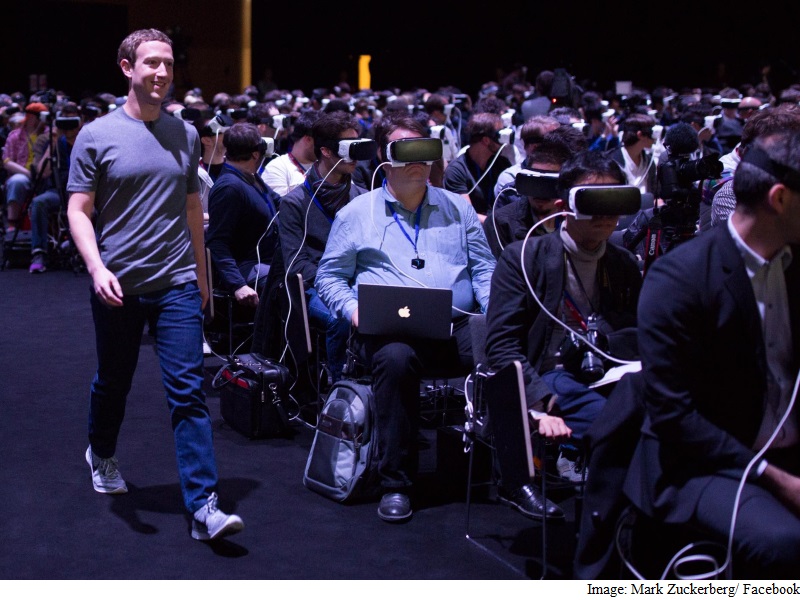- Home
- Social networking
- Social networking Opinion
- What a Creepy Photo of Mark Zuckerberg Says About Our Dystopian Tech Future
What a Creepy Photo of Mark Zuckerberg Says About Our Dystopian Tech Future

Later, when the assembled journalists take the headsets off they're Samsung Gear VR headsets, for the record, and this is the Mobile World Congress in Spain they'll be amazed to realize that Zuckerberg is there; they'll rush him for quotes and photos onstage. Much later, people on the network that Zuckerberg invented will start passing this photo around. It looks like "1984," they say, or that 1984 Apple ad; it reminds them of "The Matrix," in which humans grow in amniotic pods and experience the "world" via a plug in their heads.
Zuckerberg has said that, in his vision for the future, these virtual experiences will be fundamentally social. But the photo suggests something quite different: Hundreds of people share a physical space, but no perception, no experience, no phenomenological anchor. The communality of a conference (literally from conferre, "to bring together") is thrown over for a series of hyper-individualized bubbles. And you're reminded, from Zuckerberg's awkward semi-smile, that the man who owns the bubbles also owns what's in them. That controlling virtual reality, in other words, is only a step from controlling reality itself.
Then again, Zuckerberg arguably does that already. There's just nothing particularly photogenic about the News Feed and its constant, imperceptible updates.
"In the age of advanced technology," wrote the media theorist Neil Postman, "spiritual devastation is more likely to come from an enemy with a smiling face."
© 2016 The Washington Post
Get your daily dose of tech news, reviews, and insights, in under 80 characters on Gadgets 360 Turbo. Connect with fellow tech lovers on our Forum. Follow us on X, Facebook, WhatsApp, Threads and Google News for instant updates. Catch all the action on our YouTube channel.
Related Stories
- Samsung Galaxy Unpacked 2025
- ChatGPT
- Redmi Note 14 Pro+
- iPhone 16
- Apple Vision Pro
- Oneplus 12
- OnePlus Nord CE 3 Lite 5G
- iPhone 13
- Xiaomi 14 Pro
- Oppo Find N3
- Tecno Spark Go (2023)
- Realme V30
- Best Phones Under 25000
- Samsung Galaxy S24 Series
- Cryptocurrency
- iQoo 12
- Samsung Galaxy S24 Ultra
- Giottus
- Samsung Galaxy Z Flip 5
- Apple 'Scary Fast'
- Housefull 5
- GoPro Hero 12 Black Review
- Invincible Season 2
- JioGlass
- HD Ready TV
- Laptop Under 50000
- Smartwatch Under 10000
- Latest Mobile Phones
- Compare Phones
- OPPO A6v 5G
- OPPO A6i+ 5G
- Realme 16 5G
- Redmi Turbo 5
- Redmi Turbo 5 Max
- Moto G77
- Moto G67
- Realme P4 Power 5G
- HP HyperX Omen 15
- Acer Chromebook 311 (2026)
- Lenovo Idea Tab Plus
- Realme Pad 3
- HMD Watch P1
- HMD Watch X1
- Haier H5E Series
- Acerpure Nitro Z Series 100-inch QLED TV
- Asus ROG Ally
- Nintendo Switch Lite
- Haier 1.6 Ton 5 Star Inverter Split AC (HSU19G-MZAID5BN-INV)
- Haier 1.6 Ton 5 Star Inverter Split AC (HSU19G-MZAIM5BN-INV)

















